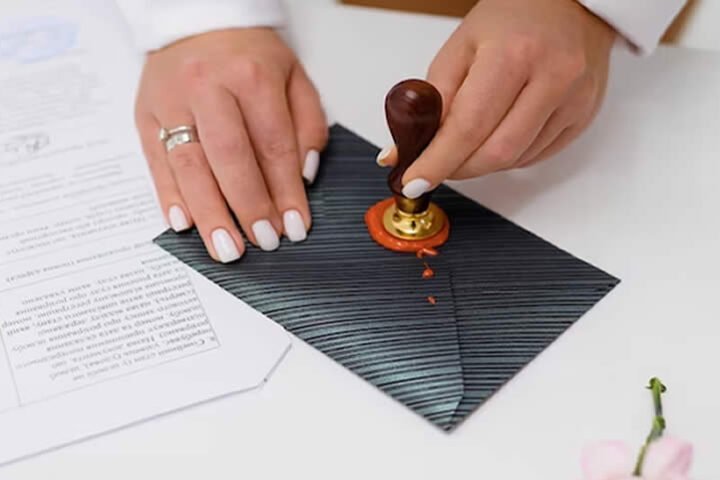Table of Contents
-
Introduction
-
The Importance of Document Validation
-
Role of Marriage Certificate Attestation
-
-
Understanding Marriage Certificate Attestation
-
What is Marriage Certificate Attestation?
-
Why is it Necessary?
-
-
Why Marriage Certificate Attestation is Important
-
Legal Recognition
-
Residency and Immigration
-
Employment Benefits
-
Personal and Legal Matters
-
-
The Steps Involved in Marriage Certificate Attestation
-
Notarization
-
Home Department Verification
-
Ministry of External Affairs (MEA) Attestation
-
Embassy or Consulate Attestation
-
Final Attestation by Authorities in the Destination Country
-
-
Common Challenges in Marriage Certificate Attestation
-
Time-Consuming Process
-
Document Discrepancies
-
Variation in Requirements
-
Language Barriers
-
-
Tips for a Smooth Marriage Certificate Attestation Process
-
Hire a Professional Service
-
Understand the Requirements
-
Start Early
-
Keep Copies
-
Verify the Document’s Details
-
-
Common Scenarios Requiring Marriage Certificate Attestation
-
Relocating for Work
-
Applying for Citizenship or Permanent Residency
-
Enrolling Children in School
-
Buying or Renting Property
-
-
Benefits of Marriage Certificate Attestation
-
Facilitates Legal Processes Abroad
-
Global Acceptance
-
Peace of Mind
-
Avoidance of Legal Issues
-
-
Conclusion
-
The Value of Attestation for Global Standards
-
Navigating the Process with Confidence
-
Your Marriage Certificate Attestation Meets Standards 2025
In an increasingly globalized world, documentation has become a key part of seamless international transitions. Whether you’re relocating for work, applying for permanent residency, or pursuing educational opportunities abroad, ensuring that your official documents meet global standards is crucial. Among these, the marriage certificate stands out, especially for married individuals seeking to validate their marital status in a foreign land. This process is formalized through Marriage Certificate Attestation, a critical step that ensures your marriage certificate is legally recognized internationally.
Understanding Marriage Certificate Attestation
Marriage Certificate Attestation is the process of authenticating a marriage certificate to confirm its validity and credibility in another country. This involves verifying the document at various levels of government or authorized agencies, ensuring it meets the required international standards. Without this, your marriage certificate may not be recognized in your destination country, potentially leading to delays or legal complications.
Why Marriage Certificate Attestation is Important
1. Legal Recognition
Attested marriage certificates are often mandatory when applying for visas, family reunification, or spousal benefits abroad. Authorities in foreign countries require this attestation to confirm the authenticity of your marital status.
2. Residency and Immigration
For many countries, particularly in the Middle East, Europe, and North America, a validated marriage certificate is required for spousal visa applications. The attestation assures the immigration authorities of your marital legitimacy.
3. Employment Benefits
In some cases, employers may request an attested marriage certificate to extend dependent benefits, such as family insurance or housing allowances.
4. Personal and Legal Matters
Attested marriage certificates are also necessary for matters like opening a joint bank account, applying for parental rights, or registering the marriage in a foreign registry.
The Steps Involved in Marriage Certificate Attestation
The process of Marriage Certificate Attestation involves several stages. Each stage ensures that the document is verified by the appropriate authority, maintaining its integrity and legality.
1. Notarization
The first step is notarization by a local notary public. This ensures that the document is genuine and matches the original record.
2. Home Department Verification
Next, the certificate is submitted to the Home Department or State Department in the issuing country for verification. This step confirms that the certificate was legitimately issued.
3. Ministry of External Affairs (MEA) Attestation
The MEA verifies the document for international use. They stamp the certificate to certify its authenticity.
4. Embassy or Consulate Attestation
The embassy or consulate of the destination country authenticates the certificate, ensuring it meets their standards.
5. Final Attestation by Authorities in the Destination Country
In some cases, the certificate may require further verification by local authorities in the destination country.
Common Challenges in Marriage Certificate Attestation
1. Time-Consuming Process
Attestation often involves multiple government departments, leading to delays. Proper planning and consulting experts can mitigate this issue.
2. Document Discrepancies
Errors or inconsistencies in the marriage certificate can lead to rejection. Always double-check the details before submission.
3. Variation in Requirements
Each country may have unique attestation requirements, making it important to understand the specific process for your destination country.
4. Language Barriers
In cases where the marriage certificate is not in the official language of the destination country, a certified translation may be required.
Tips for a Smooth Marriage Certificate Attestation Process
1. Hire a Professional Service
Many agencies specialize in attestation services, ensuring accuracy and efficiency. They can navigate the complex process on your behalf.
2. Understand the Requirements
Research the attestation process specific to your destination country to avoid surprises or unnecessary delays.
3. Start Early
Begin the attestation process well in advance to account for potential delays at various stages.
4. Keep Copies
Always maintain multiple copies of your marriage certificate and attestation receipts for reference.
5. Verify the Document’s Details
Ensure that names, dates, and other details on your certificate are accurate and match your other legal documents.
Common Scenarios Requiring Marriage Certificate Attestation
1. Relocating for Work
If you are moving to a foreign country for work, an attested marriage certificate may be required to obtain a family visa or dependent pass for your spouse.
2. Applying for Citizenship or Permanent Residency
Many countries demand attested marriage certificates as proof of marital status when applying for residency or citizenship.
3. Enrolling Children in School
Some schools require attested certificates as proof of the parents’ marital status.
4. Buying or Renting Property
In certain countries, real estate transactions involving married couples may necessitate an attested marriage certificate.
Benefits of Marriage Certificate Attestation
1. Facilitates Legal Processes Abroad
Attestation ensures smooth legal proceedings, from visa applications to financial transactions.
2. Global Acceptance
Once attested, your marriage certificate is valid and recognized in the destination country, simplifying international transitions.
3. Peace of Mind
With a properly attested marriage certificate, you can confidently navigate personal and professional milestones without bureaucratic hurdles.
4. Avoidance of Legal Issues
Proper attestation eliminates the risk of document-related disputes in foreign jurisdictions.
Conclusion
Ensuring your Marriage Certificate meets global standards through attestation is not merely a formality but a necessity for seamless international interactions. From applying for visas to securing legal recognition of your marital status, Marriage Certificate Attestation serves as the gateway to a hassle-free experience abroad. By understanding the process, adhering to the requirements, and seeking professional assistance when necessary, you can navigate this complex process with ease.
So, whether you’re relocating for work, reuniting with your family, or pursuing new opportunities, remember that an attested marriage certificate is your key to global recognition and compliance.











